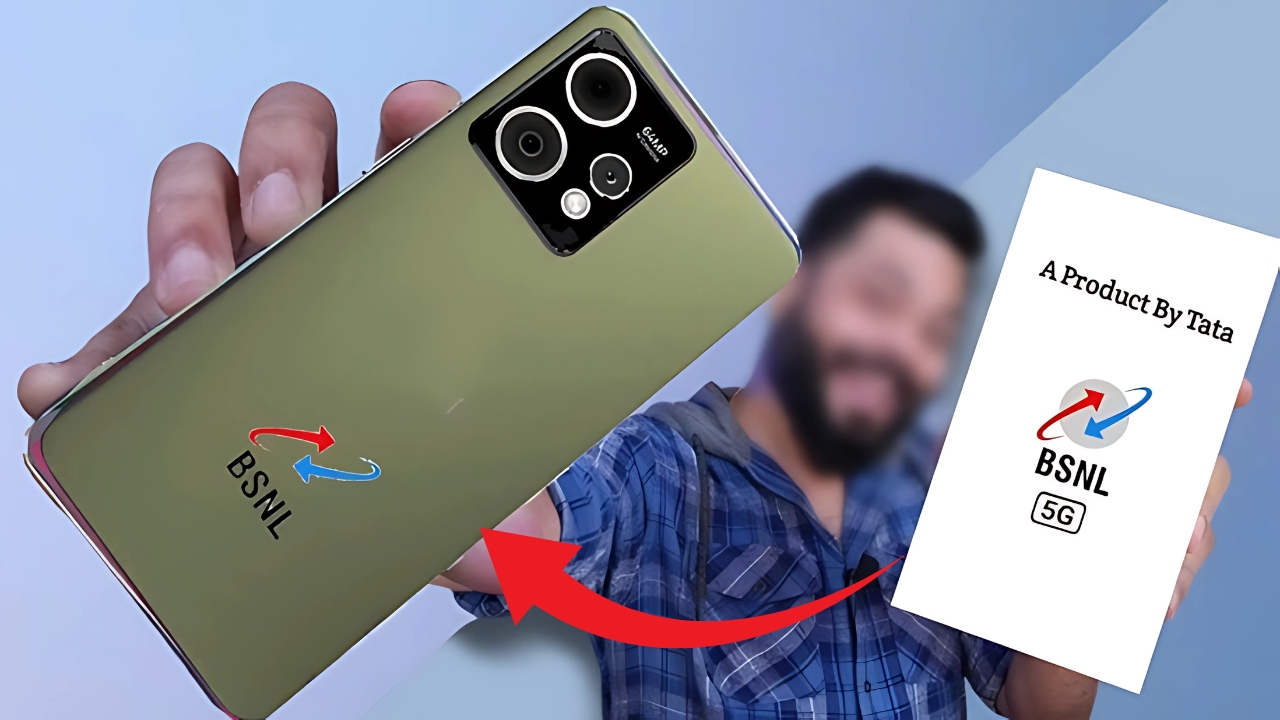BSNL Smartphone : In recent years, Bharat Sanchar Nigam Limited (BSNL) has been making significant strides in the Indian telecommunications market.
While BSNL hasn’t launched its own branded smartphone, the company has been focusing on improving its network infrastructure and services to enhance user experience.
This article delves into BSNL’s latest developments and how they impact smartphone users in India.
BSNL’s Network Advancements-
4G Rollout
BSNL is currently in the process of rolling out its 4G network across India. The state-owned telecom operator has ambitious plans to establish 100,000 4G sites by mid-2025.
This extensive network expansion will significantly improve connectivity and data speeds for smartphone users across the country, particularly in rural and semi-urban areas where BSNL has a strong presence.
5G Preparations
Looking ahead, BSNL is already laying the groundwork for 5G services. The company has successfully conducted trials of its 5G Radio Access Network (RAN) and core network on both 3.6 GHz and 700 MHz frequency bands.
While the commercial rollout of 5G is expected to begin in 2025, many of the 4G sites being deployed will be 5G-ready, allowing for a smoother transition when the time comes.
New Services Enhancing Smartphone Experience-
BSNL has recently introduced seven new services that directly benefit smartphone users:
-
Spam-Free Network: BSNL has implemented an advanced spam-blocking feature that automatically filters out phishing attempts and malicious SMS. This service enhances the security of smartphone communications without requiring users to manually report or block suspicious messages.
-
National Wi-Fi Roaming: BSNL’s Fiber-to-the-Home (FTTH) customers can now access BSNL Wi-Fi hotspots across the country at no additional cost. This service allows smartphone users to conserve their mobile data while maintaining high-speed internet connectivity in various locations.
-
BSNL IFTV (Intranet Fiber TV): This service offers over 500 live TV channels through BSNL’s fiber network. FTTH subscribers can access this content on their smartphones without consuming their data packs, providing an additional entertainment option for users.
-
Any Time SIM Kiosks: BSNL has introduced automated SIM kiosks that operate 24/7, allowing users to purchase, upgrade, or replace SIM cards at their convenience. These kiosks support UPI/QR-based payments and feature multilingual KYC integration, streamlining the process of obtaining or managing SIM cards for smartphones.
-
Direct-to-Device Connectivity: BSNL has pioneered India’s first Direct-to-Device (D2D) solution that merges satellite and terrestrial mobile networks. This technology ensures uninterrupted connectivity in remote areas or during emergencies, expanding the reach and reliability of smartphone communications.
-
Disaster Relief Network: BSNL has developed a scalable, secure communication network for government agencies that remains operational during emergencies. This network utilizes drones and balloon-based systems to extend coverage when needed, ensuring that smartphone users can stay connected even in crisis situations.
-
Private 5G for Mining Operations: In collaboration with C-DAC, BSNL has introduced low-latency 5G connectivity specifically for the mining sector. While not directly related to consumer smartphones, this development showcases BSNL’s commitment to advancing 5G technology in various sectors.
Impact on Smartphone Users-
These developments from BSNL have several implications for smartphone users in India:
-
Improved Connectivity: The expansion of 4G networks and preparation for 5G will result in faster data speeds and more reliable connections for BSNL users across India.
-
Enhanced Security: The spam-blocking feature will protect users from potential scams and malicious content, making smartphone usage safer.
-
Cost Savings: Services like national Wi-Fi roaming and IFTV can help users reduce their mobile data consumption, potentially leading to lower bills.
-
Convenience: Automated SIM kiosks make it easier for users to manage their mobile services without visiting physical stores.
-
Extended Coverage: The Direct-to-Device connectivity solution ensures that smartphones remain useful even in areas with limited traditional network coverage.
BSNL’s Market Position-
BSNL has seen significant growth in its subscriber base, increasing from 7.5 million in March 2024 to 18 million by October 2024.
The company aims to capture a 25% market share in India by 2025. This growth can be attributed to several factors:
-
Competitive Pricing: BSNL has maintained lower tariffs compared to private sector rivals, attracting price-sensitive consumers.
-
Focus on Quality: Instead of raising prices, BSNL is concentrating on improving its service quality to retain and attract customers.
-
Rural Penetration: BSNL’s strong presence in rural areas gives it an advantage in reaching underserved markets.
Future Outlook-
As BSNL continues to expand its 4G network and prepare for 5G, smartphone users can expect:
-
Wider Coverage: Improved network availability, especially in rural and semi-urban areas.
-
Faster Speeds: The transition to 4G and eventually 5G will significantly boost data speeds for users.
-
New Services: BSNL is likely to introduce more innovative services tailored for smartphone users as it enhances its network capabilities.
-
Competitive Market: BSNL’s growth may lead to increased competition in the telecom sector, potentially resulting in better services and pricing for all smartphone users in India.
Conclusion-
While BSNL hasn’t launched its own smartphone, the company’s focus on network improvements and innovative services is set to significantly enhance the mobile experience for users across India.
As BSNL continues to expand its 4G coverage and prepare for 5G, smartphone users can look forward to faster speeds, better connectivity, and a range of new services designed to meet their evolving needs.
The coming years will be crucial for BSNL as it aims to solidify its position in the competitive Indian telecom market and provide cutting-edge services to smartphone users nationwide.
